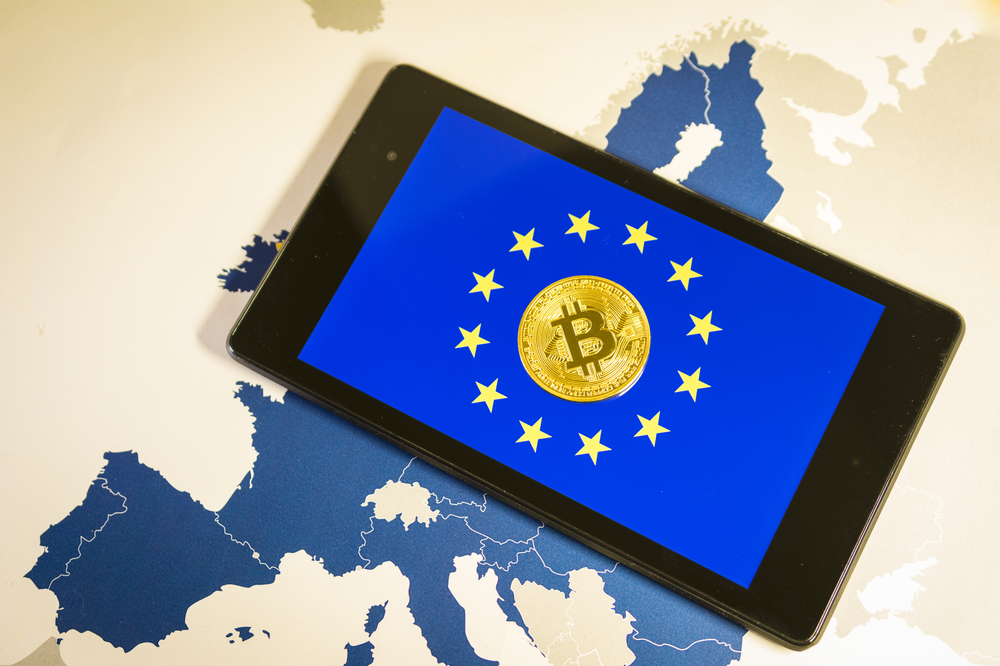-
 BaFin Authorization for Crypto Asset Services – Is MiCAR Worth the Wait?
BaFin Authorization for Crypto Asset Services – Is MiCAR Worth the Wait?
Founders in the crypto industry often ask themselves whether it is still worth applying for a BaFin authorization according to the KWG or the WpIG prior to the MiCAR coming into force. In most cases, the answer is a clear “yes”.
-
 Europe goes Crypto (Part IV) – Will BaFin-authorized Companies Need a MiCAR Authorization?
Europe goes Crypto (Part IV) – Will BaFin-authorized Companies Need a MiCAR Authorization?
In the future, crypto asset service providers in the EU will have to obtain an authorization for their business in accordance with MiCAR. However, there are exceptions in this respect for banks and investment firms. The situation is somewhat more problematic for German crypto custodians.
-
 Europe goes Crypto (Part III) – The MiCAR White Paper
Europe goes Crypto (Part III) – The MiCAR White Paper
Pursuant to the new MiCAR, crypto-asset offerors will be required to publish a comprehensive white paper prior to the public offering of the tokens or prior to a listing on a crypto trading platform. Which information must be set out in such white papers?
-
 Europe goes Crypto (Part II) – How Much DeFi is in MiCAR?
Europe goes Crypto (Part II) – How Much DeFi is in MiCAR?
MiCAR is initially intended to regulate the crypto market only by imposing stricter rules and obligations on centrally acting players. DeFi models are generally not to be included. But when is a service really considered to be decentral in the sense of MiCAR?
-
 Europe goes Crypto (Part I) – The MiCAR Authorization
Europe goes Crypto (Part I) – The MiCAR Authorization
Under the new MiCAR, crypto-asset service providers will in future have to obtain regulatory authorization before they are allowed to operate in the EU. What will be the requirements for a successful MiCAR authorization application?
-
 Security Token Offerings in Times of Inflation – More Tokenized Equity Products Are Needed
Security Token Offerings in Times of Inflation – More Tokenized Equity Products Are Needed
Inflation rates are at a record high and key interest rates are rising. Investors are more interested in equity than debt in these times. But which equity products can actually be tokenized under German law?
-
 The Reward Model – The Solution for Tokenization of Assets?
The Reward Model – The Solution for Tokenization of Assets?
Numerous business models attempt to link ownership of tangible assets with tokens. Although the German private law does not allow this in principle, it offers an attractive alternative for the tokenization of assets.
-
 Utility Tokens in MiCAR – What Are the Differences to the Current German Regulation?
Utility Tokens in MiCAR – What Are the Differences to the Current German Regulation?
MiCAR introduces a new and Pan-European concept of crypto assets, which differs strongly in its definition from the German crypto asset concept. What impact will this have on the handling of utility tokens?
-
 Crypto-Asset Services in MiCAR – Which Activities will be Subject to Authorization under MiCAR?
Crypto-Asset Services in MiCAR – Which Activities will be Subject to Authorization under MiCAR?
The text for the Markets in Crypto Assets Regulation (MiCAR) has recently been finalized. As soon as the new regulation applies, the provision of crypto-asset services in the EU will be subject to authorization. But which activities does this actually affect exactly?
-
 KYC And Crypto Securities Registrar – Who Must be Screened by the Registrar?
KYC And Crypto Securities Registrar – Who Must be Screened by the Registrar?
Crypto securities registrars are obligated in accordance to anti-money laundering law to apply KYC measures to their customers. But who is actually the registrar’s customer, the issuer or the crypto security investor?
-
 Yield Farming – Does BaFin Take an Interest in Liquidity Providers?
Yield Farming – Does BaFin Take an Interest in Liquidity Providers?
Crypto investors can use their crypto assets for profit via yield farming instead of merely hodling them. But can participation in yield farming trigger regulatory authorization requirements for liquidity providers?
-
 Securities Information Sheet (WIB) for Security Tokens – Can BaFin Delay the Approval Until the Start of the Token Sale?
Securities Information Sheet (WIB) for Security Tokens – Can BaFin Delay the Approval Until the Start of the Token Sale?
Occasionally, BaFin refuses to approve WIBs until shortly prior to the start of the public offering, arguing that approval should be granted close in time to the start of the offering in order to ensure that the WIB is up-to-date. Is this administrative practice legally tenable?
 BaFin Authorization for Crypto Asset Services – Is MiCAR Worth the Wait?
Founders in the crypto industry often ask themselves whether it is still worth applying for a BaFin authorization according to the KWG or the WpIG prior to the MiCAR coming into force. In most cases, the answer is a clear “yes”.
BaFin Authorization for Crypto Asset Services – Is MiCAR Worth the Wait?
Founders in the crypto industry often ask themselves whether it is still worth applying for a BaFin authorization according to the KWG or the WpIG prior to the MiCAR coming into force. In most cases, the answer is a clear “yes”. Europe goes Crypto (Part IV) – Will BaFin-authorized Companies Need a MiCAR Authorization?
In the future, crypto asset service providers in the EU will have to obtain an authorization for their business in accordance with MiCAR. However, there are exceptions in this respect for banks and investment firms. The situation is somewhat more problematic for German crypto custodians.
Europe goes Crypto (Part IV) – Will BaFin-authorized Companies Need a MiCAR Authorization?
In the future, crypto asset service providers in the EU will have to obtain an authorization for their business in accordance with MiCAR. However, there are exceptions in this respect for banks and investment firms. The situation is somewhat more problematic for German crypto custodians. Europe goes Crypto (Part III) – The MiCAR White Paper
Pursuant to the new MiCAR, crypto-asset offerors will be required to publish a comprehensive white paper prior to the public offering of the tokens or prior to a listing on a crypto trading platform. Which information must be set out in such white papers?
Europe goes Crypto (Part III) – The MiCAR White Paper
Pursuant to the new MiCAR, crypto-asset offerors will be required to publish a comprehensive white paper prior to the public offering of the tokens or prior to a listing on a crypto trading platform. Which information must be set out in such white papers? Europe goes Crypto (Part II) – How Much DeFi is in MiCAR?
MiCAR is initially intended to regulate the crypto market only by imposing stricter rules and obligations on centrally acting players. DeFi models are generally not to be included. But when is a service really considered to be decentral in the sense of MiCAR?
Europe goes Crypto (Part II) – How Much DeFi is in MiCAR?
MiCAR is initially intended to regulate the crypto market only by imposing stricter rules and obligations on centrally acting players. DeFi models are generally not to be included. But when is a service really considered to be decentral in the sense of MiCAR? Europe goes Crypto (Part I) – The MiCAR Authorization
Under the new MiCAR, crypto-asset service providers will in future have to obtain regulatory authorization before they are allowed to operate in the EU. What will be the requirements for a successful MiCAR authorization application?
Europe goes Crypto (Part I) – The MiCAR Authorization
Under the new MiCAR, crypto-asset service providers will in future have to obtain regulatory authorization before they are allowed to operate in the EU. What will be the requirements for a successful MiCAR authorization application? Security Token Offerings in Times of Inflation – More Tokenized Equity Products Are Needed
Inflation rates are at a record high and key interest rates are rising. Investors are more interested in equity than debt in these times. But which equity products can actually be tokenized under German law?
Security Token Offerings in Times of Inflation – More Tokenized Equity Products Are Needed
Inflation rates are at a record high and key interest rates are rising. Investors are more interested in equity than debt in these times. But which equity products can actually be tokenized under German law? The Reward Model – The Solution for Tokenization of Assets?
Numerous business models attempt to link ownership of tangible assets with tokens. Although the German private law does not allow this in principle, it offers an attractive alternative for the tokenization of assets.
The Reward Model – The Solution for Tokenization of Assets?
Numerous business models attempt to link ownership of tangible assets with tokens. Although the German private law does not allow this in principle, it offers an attractive alternative for the tokenization of assets. Utility Tokens in MiCAR – What Are the Differences to the Current German Regulation?
MiCAR introduces a new and Pan-European concept of crypto assets, which differs strongly in its definition from the German crypto asset concept. What impact will this have on the handling of utility tokens?
Utility Tokens in MiCAR – What Are the Differences to the Current German Regulation?
MiCAR introduces a new and Pan-European concept of crypto assets, which differs strongly in its definition from the German crypto asset concept. What impact will this have on the handling of utility tokens? Crypto-Asset Services in MiCAR – Which Activities will be Subject to Authorization under MiCAR?
The text for the Markets in Crypto Assets Regulation (MiCAR) has recently been finalized. As soon as the new regulation applies, the provision of crypto-asset services in the EU will be subject to authorization. But which activities does this actually affect exactly?
Crypto-Asset Services in MiCAR – Which Activities will be Subject to Authorization under MiCAR?
The text for the Markets in Crypto Assets Regulation (MiCAR) has recently been finalized. As soon as the new regulation applies, the provision of crypto-asset services in the EU will be subject to authorization. But which activities does this actually affect exactly? KYC And Crypto Securities Registrar – Who Must be Screened by the Registrar?
Crypto securities registrars are obligated in accordance to anti-money laundering law to apply KYC measures to their customers. But who is actually the registrar’s customer, the issuer or the crypto security investor?
KYC And Crypto Securities Registrar – Who Must be Screened by the Registrar?
Crypto securities registrars are obligated in accordance to anti-money laundering law to apply KYC measures to their customers. But who is actually the registrar’s customer, the issuer or the crypto security investor? Yield Farming – Does BaFin Take an Interest in Liquidity Providers?
Crypto investors can use their crypto assets for profit via yield farming instead of merely hodling them. But can participation in yield farming trigger regulatory authorization requirements for liquidity providers?
Yield Farming – Does BaFin Take an Interest in Liquidity Providers?
Crypto investors can use their crypto assets for profit via yield farming instead of merely hodling them. But can participation in yield farming trigger regulatory authorization requirements for liquidity providers? Securities Information Sheet (WIB) for Security Tokens – Can BaFin Delay the Approval Until the Start of the Token Sale?
Occasionally, BaFin refuses to approve WIBs until shortly prior to the start of the public offering, arguing that approval should be granted close in time to the start of the offering in order to ensure that the WIB is up-to-date. Is this administrative practice legally tenable?
Securities Information Sheet (WIB) for Security Tokens – Can BaFin Delay the Approval Until the Start of the Token Sale?
Occasionally, BaFin refuses to approve WIBs until shortly prior to the start of the public offering, arguing that approval should be granted close in time to the start of the offering in order to ensure that the WIB is up-to-date. Is this administrative practice legally tenable?


